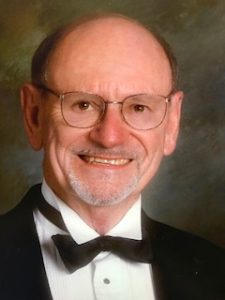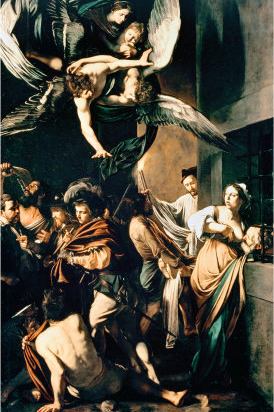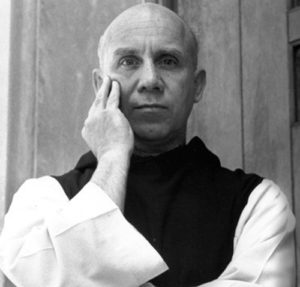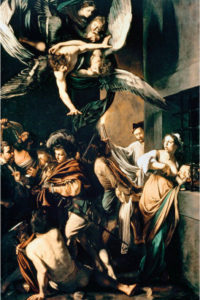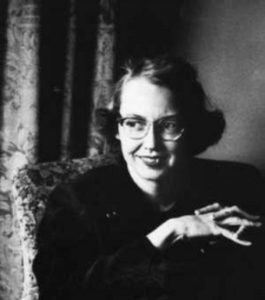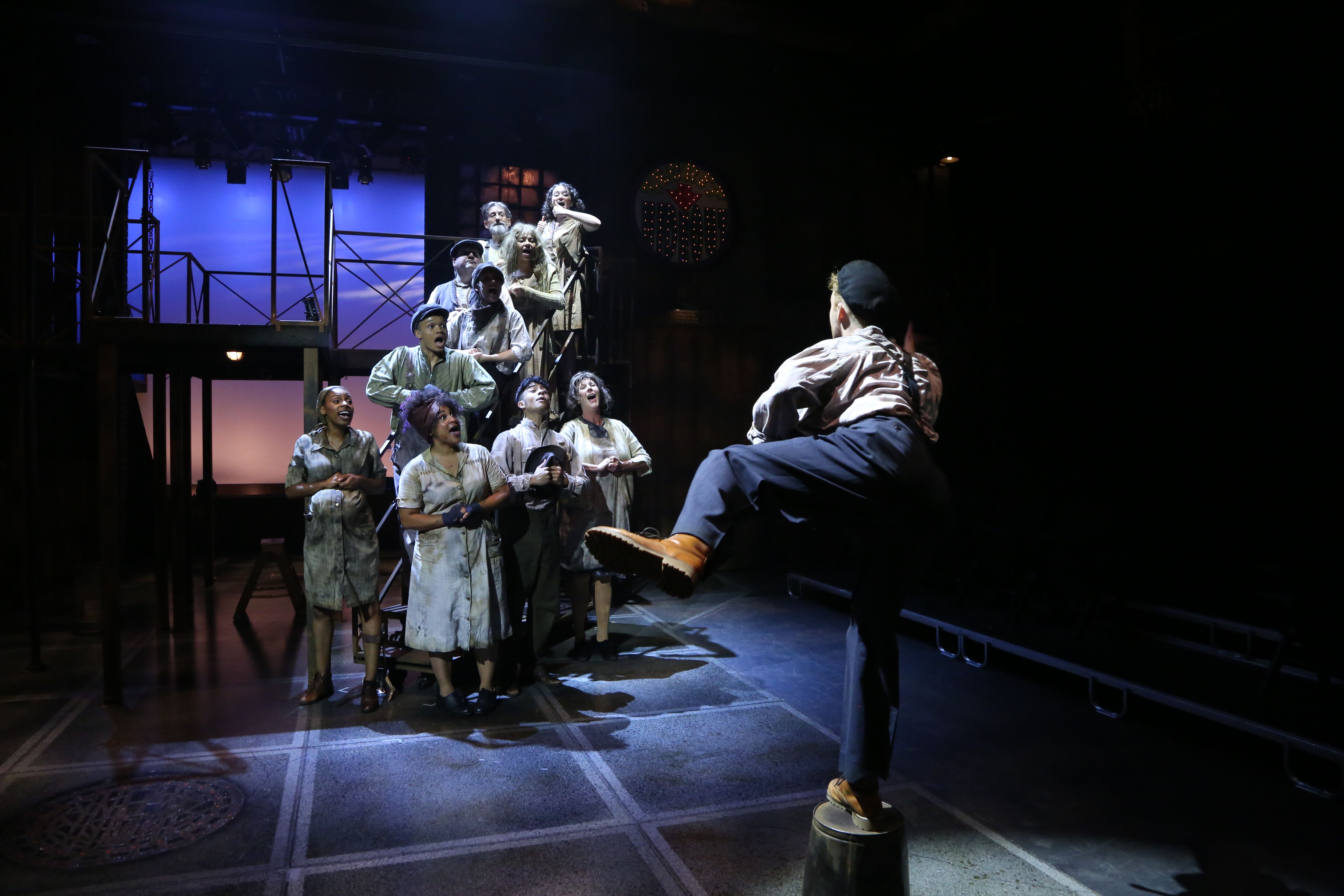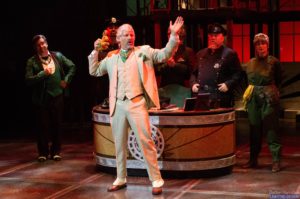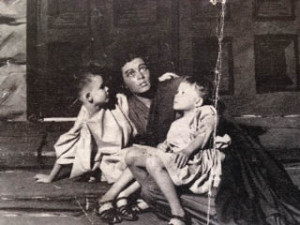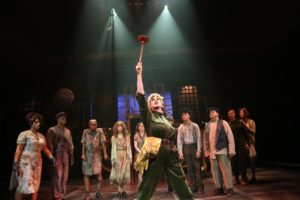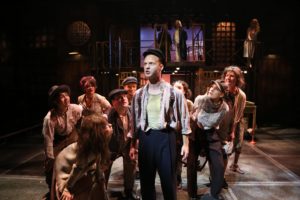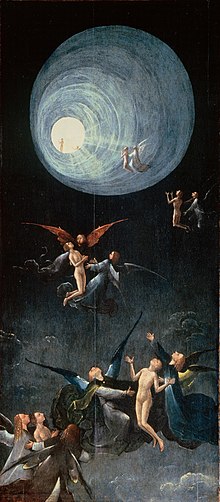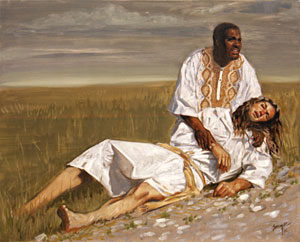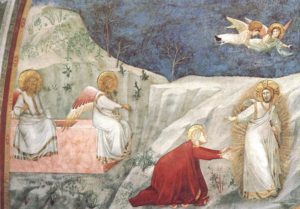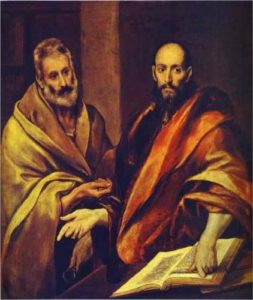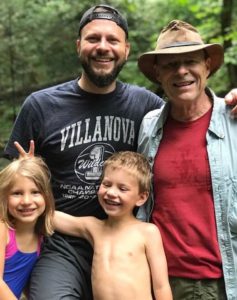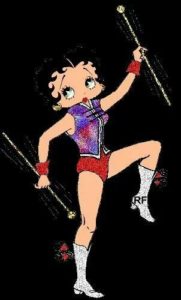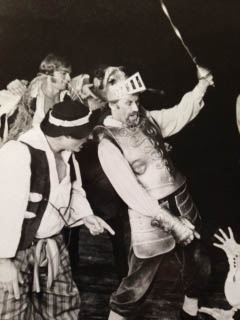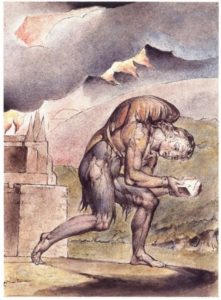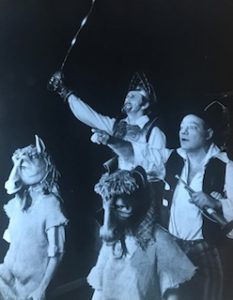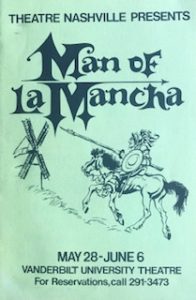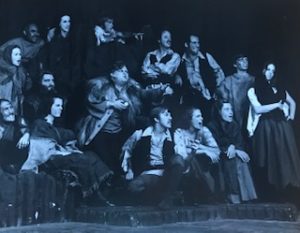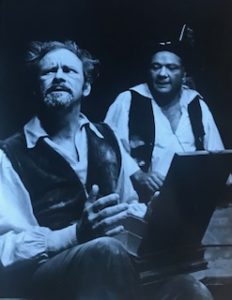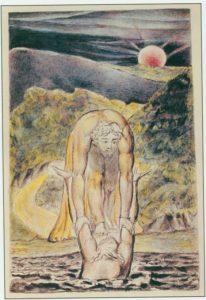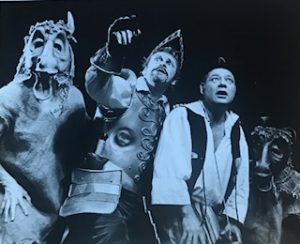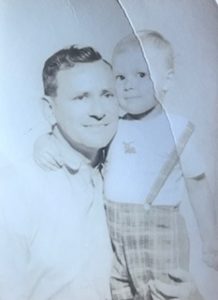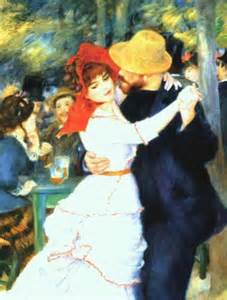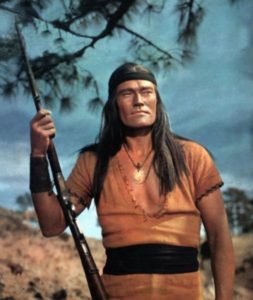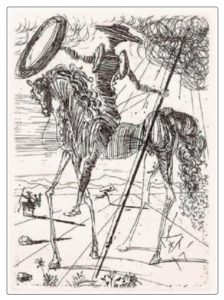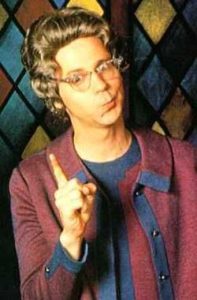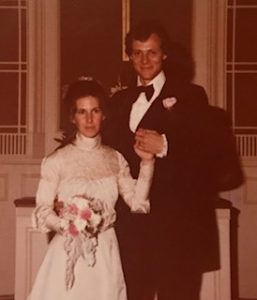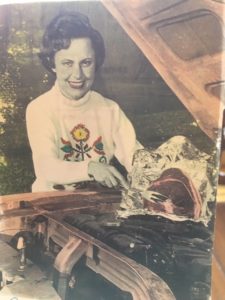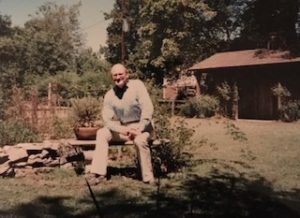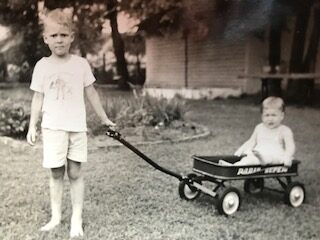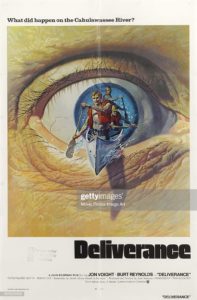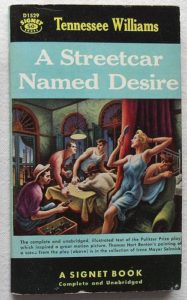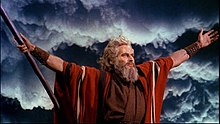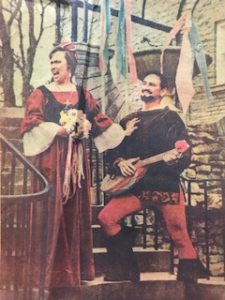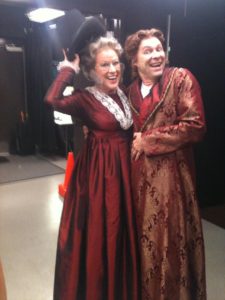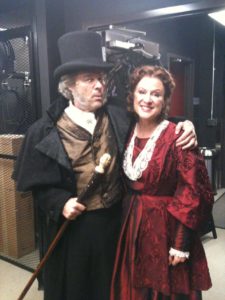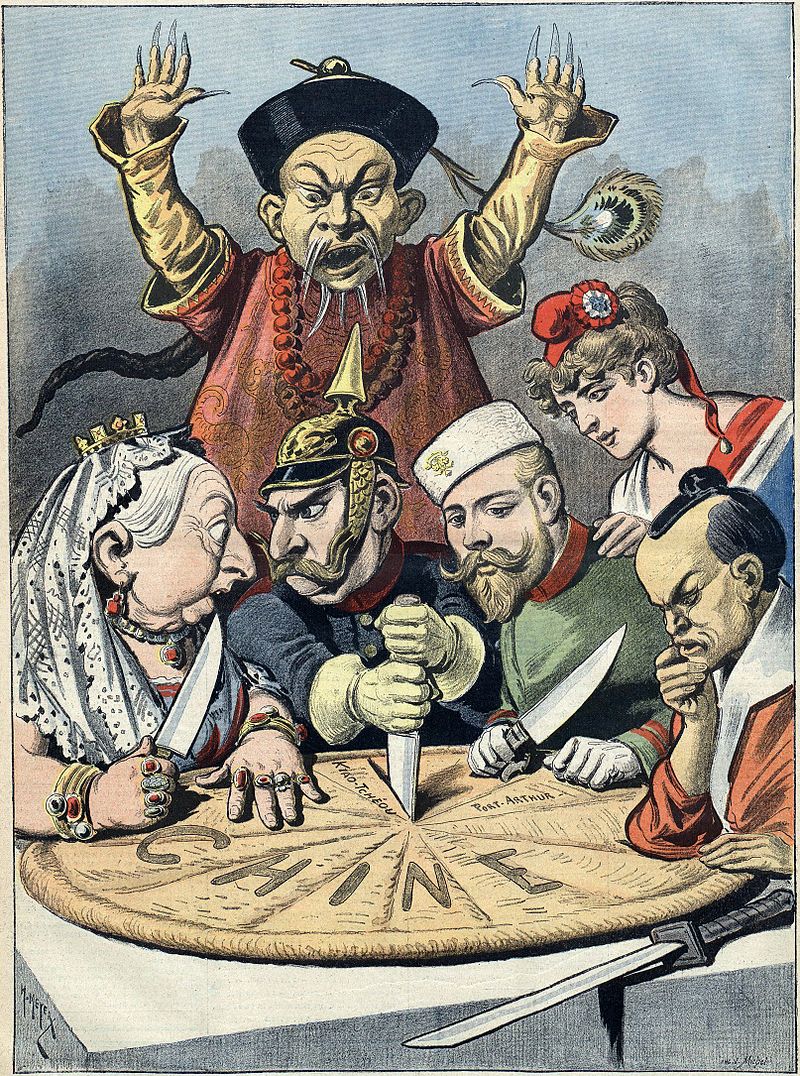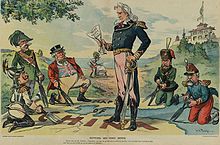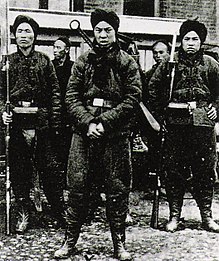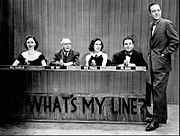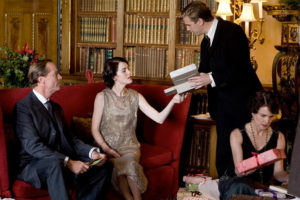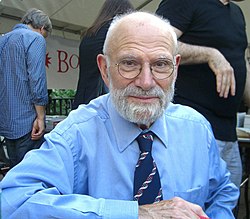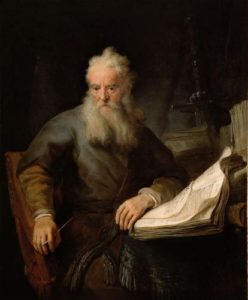You Can Go Home Again
I never thought I would see this day. I did not even dream about it or hope that it might happen. It just happened. I did not try to make it happen; no strings were pulled; no favors called in; no money exchanged. It just happened. This is not some random act of stars aligning. Dare I say it, but this might be something ordained, and it took fifty years to get here.
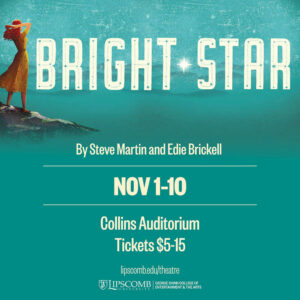
When I walked out onto the stage of Collins Auditorium to perform in Beki Baker’s (Chair of the theatre department at Lipscomb University) production of “Bright Star” in the role of Josiah Dobbs, I felt a powerful moment of coming home. At the age of twenty I did the role of Biff Loman in Jerry Henderson’s production of “Death of a Salesman” on this very same stage.
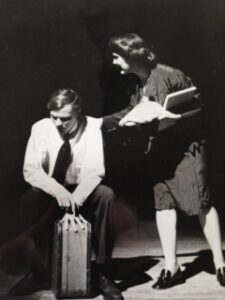
To say that my relationship with the school was tumultuous would be an understatement. In high school after numerous infractions, I had been invited to seek education elsewhere, and when allowed to attend the college a couple of years later, I had to agree to be placed on all probation’s with the exception of “Short Skirt” probation. Yes, that was a thing. Any infraction of any probation and it was sayonara. (A Japanese term used in situations where you will either not see the person for a long time, or ever again.) Quite a tightrope to walk for a rebel like me. We parted ways shortly after “Death of a Salesman,” shaking the dust from our feet and with a “good riddance” on our lips. I do not blame the school. I was a handful during my high school years and for those few semesters I attended the University. We were not well-matched, and it took time and distance to bring us back together.
My father taught music and drama at Lipscomb University for over thirty years, plus he was the worship leader for the chapel services. During my period as a prodigal the a strain on the father/son relationship was evident. But in time we were reconciled, yea verily; more than just reconciled. We took joy in our relationship and worked together in countless productions. That was a miracle I attribute to divine Providence; I needed the miracle of repentance while Dad needed the miracle of patience.
Way back in the 1990’s I was touring the country with some one-man shows I had created. Dad invited me to perform a shorten version of one of these shows for the chapel service he led at Lipscomb. This was followed by an invitation from the powers-that-be to do a full show for the University’s annual “High School Day” where kids came from all over the country to spend a weekend on the campus and get the spiel for why Lipscomb University was a great choice for their college career after graduating high school. I was to perform my show on that Saturday night. The Collins Auditorium was packed with high school seniors. I mean every seat in the house was occupied. My dad sat up in the audience-right balcony. His guest that night was a recovering alcoholic, someone he was mentoring. That was so Dad.
Let me just say it. I played a few high schools back in the day and I hated it. That night was no exception, but it was a gig. I was pacing backstage, waiting for the house lights to go out, and listening to the hubbub of 1,500 rowdy kids on the opposite side of the curtain. I believe in the principal of “aesthetic distance” (a degree of detachment between actor and audience), and this crowd was way too close. I kept wondering how in the world did I get here, how could I get out of here, and where was the quickest exit.
Then something happened in my heart. I’ll never forget it. I made a bargain with God. Yeah, you read that right. I had never done that before, and I have not done it since. In general, my advice would be to never negotiate a deal with God using terms you lay out, but for some reason this heavy conviction came upon me and I said, “God, if these kids give me a standing ovation at the curtain call, then I will confess my past life and new faith in front of them.” Why did I do that? Just imagine me hitting my forehead with the heel of my hand and repeating “Stupid. Stupid. Stupid.” I mean that bargain just flew out of my mouth before I had time to think about it or put it back…back where, I don’t know. The words were in the air, and words are powerful, and they would not return void no matter how much I regretted saying them.
You guessed it. Those kids sat still for over an hour, laughing when appropriate and quiet and attentive when the story turned somber. At the blackout at the end of the show, I kept saying to myself, “Please don’t stand. Please don’t stand.” But when the lights came up for the curtain call the audience was already on its feet. They had not waited for the lights. Can you hear the laughter in heaven? There was no “aesthetic distance” now. There was no soaking in the adoration. It was confession time, and I asked them to be seated.
I told them that in the not-so-long-ago I used to be them, and that during a dark period of my life I had embraced a waywardness I regretted. And then I pointed to my father up in the balcony and said that he was the reason I was here tonight; my earthly and my heavenly fathers had enabled me to be forgiven, to be justified, and to stand. The kids weren’t really sure what to make of this. I guess the moment wasn’t really for them anyway. But I thanked them for their kind attention and made my exit.
So now when I enter Collins Auditorium to get ready for the show, I walk past the wall outside the Buddy and Bernie Arnold Rehearsal Hall and see dozens of pictures of past moments in my parent’s history with Lipscomb University. And on my way to the dressing room, I touch some of those pictures as I pass by like a mezuzah nailed to the doorpost to receive the blessing of a godly heritage.
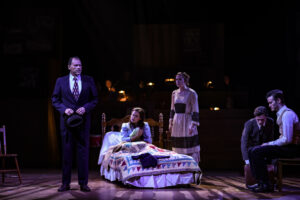
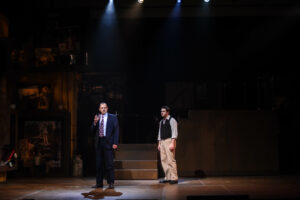
And when the lights go up for each performance of “Bright Star,” I get to go on stage with a talented group of kids that I have watched throughout the rehearsal process achieve a greatness in their roles. I get to work with a director, and the artistic staff and backstage crew that have been professional in every way beyond what I ever expected. When Dad did music and theatre for the University, he was the department. Now the department is an overflowing cup of talented faculty and staff that would make him so proud. It makes me proud to be on that stage, to walk the boards he walked, to stand where he stood, leading worship and directing plays. Maybe that bargain with God wasn’t such a bad idea after all.
